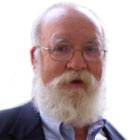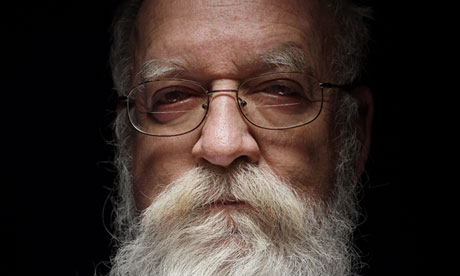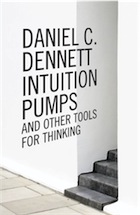Whether people in a free country committed to the liberty of thought and freedom of expression can be criminally punished for expressing their opinion about the government is the moot question. Does the government have the right to affection? What is the origin of the law of sedition in India? How did the framers of the Constitution deal with it? How have our courts interpreted this sedition provision?
In the last seven years, an extreme nationalist ideology actively supported by pliant journalists repeatedly used aggressive nationalism to suppress dissent, mock liberals and civil libertarians and several governments routinely invoked Section 124-A that penalises sedition. An 84-year-old Jesuit priest, Stan Swamy, and 21-year-old Disha Ravi were not spared. A number of CAA (Citizenship Amendment Act) protesters are facing sedition charges. NCRB data shows that between 2016 to 2019, there has been a whopping 160 per cent increase in the filing of sedition charges with a conviction rate of just 3.3 per cent. Of the 96 people charged in 2019, only two could be convicted.
On Thursday, a two-judge bench of Justices U U Lalit and Vineet Saran observed that “every journalist is entitled to the protection under the Kedar Nath judgment (1962)” on the petition filed by journalist Vinod Dua. Dua had sought the quashing of an FIR against him filed by a BJP leader of Himachal Pradesh. The bench took eight months to pronounce its order as arguments had concluded on October 6, 2020.
Justice Lalit in his 117-page historic judgment demolished all the arguments against the wider application of the sedition provision. The court entertained Dua’s writ petition under Article 32 as the Himachal Pradesh police failed to complete the investigation and submit its report under Section 173 of the Code of Criminal Procedure. The Court found that statements attributed to Dua that the Prime Minister had used deaths and terror threats to garner votes were indeed not made in the talk show on March 30, 2020.
The Court relied on the Kedar Nath judgement in which the apex court had held that a citizen has the right to say or write whatever he likes about the government or its measures by way of criticism so long as he does not incite people to violence against the government or with the intention of creating public disorder. Section 124A read along with explanations is not attracted without such an allusion to violence. The Court concluded that statements made by Dua about masks, ventilators, migrant workers, etc. were not seditious and were mere disapprobation so that Covid management improves. The same were certainly not made to incite people to indulge in violence or create any disorder. The Court in Para 44 concluded that Dua’s prosecution would be unjust and would be violative of the freedom of speech.
Governments of opposition parties, including the Congress, have also indiscriminately invoked sedition charges against intellectuals, writers, dissenters and protesters. In fact, it was a Congress government that had made sedition a cognisable offence in 1974. Arundhati Roy, Aseem Trivedi, Binayak Sen and even those who opposed the nuclear plant in Kudankulam, Tamil Nadu and the expansion of the Sterlite plant in Thoothukudi were booked under Sec 124-A.
Section 124-A was not a part of the original Indian Penal Code drafted by Lord Macaulay and treason was confined just to levying war. It was Sir James Fitzjames Stephen who subsequently got it inserted in 1870 in response to the Wahabi movement that had asked Muslims to initiate jihad against the colonial regime. While introducing the Bill, he argued that Wahabis are going from village to village and preaching that it was the sacred religious duty of Muslims to wage a war against British rule. Stephen himself was interested in having provisions similar to the UK Treason Felony Act 1848 because of his strong agreement with the Lockean contractual notion of allegiance to the king and deference to the state.
Mahatma Gandhi, during his trial in 1922, termed Section 124-A as the “prince among the political sections of IPC designed to suppress liberty of the citizen”. He went on to tell the judge that “affection cannot be manufactured or regulated by law. If one has no affection for a person or system, one should be free to give fullest expression to his disaffection so long as it does not contemplate, promote or incite to violence”. Though Justice Maurice Gwyer in Niharendu Dutt Majumdar (1942) had narrowed the provision and held that public disorder was the essence of the offence, the Privy Council in Sadashiv Narayan Bhalerao (1947) relying on Explanation 1 observed public disorder was not necessary to complete the offence.
Strangely, the Fundamental Rights Sub-Committee (April 29, 1947) headed by Sardar Patel included sedition as a legitimate ground to restrict free speech. When Patel was criticised by other members of the Constituent Assembly, he dropped it. Constitutionally, Section 124A being a pre-Constitution law that is inconsistent with Article 19(1)(a), on the commencement of the Constitution, had become void. In fact, it was struck down by the Punjab High Court in Tara Singh Gopi Chand (1951).
Justice Lalit ought to have clarified the distinction between “government established by law” and “persons for the time being engaged in carrying on the administration” as the visible symbol of the state made by the Court in Kedar Nath. The very existence of the state will be in jeopardy if the government established by law is subverted. This observation did require some clarification by the Court as the state and government are not the same. Governments come and go but the Indian state is a permanent entity. Criticism of ministers cannot be equated with the creation of disaffection against the State. No government, as Mahatma Gandhi told Judge R S Broomfield, has a right to love and affection. India of the 21st century should not think like Stephen who was too worried about Macaulay’s code not penalising criticism of the government, however severe, hostile, unfair or disingenuous. We must understand that no slogan by itself, howsoever provocative such as “Khalistan Zindabad” can be legitimately termed as seditious as per the Balwant Singh (1995) judgment of the Supreme Court.
The Congress’s loss in the 2019 general election is attributed to, among other reasons, its manifesto’s promise that it would remove the sedition provision if voted to office. In 2018, the Law Commission had recommended that the sedition law should not be used to curb free speech. Let the criminal law revision committee working under the Ministry of Home Affairs make the bold recommendation of dropping the draconian law. A political consensus needs to be forged on this issue.


